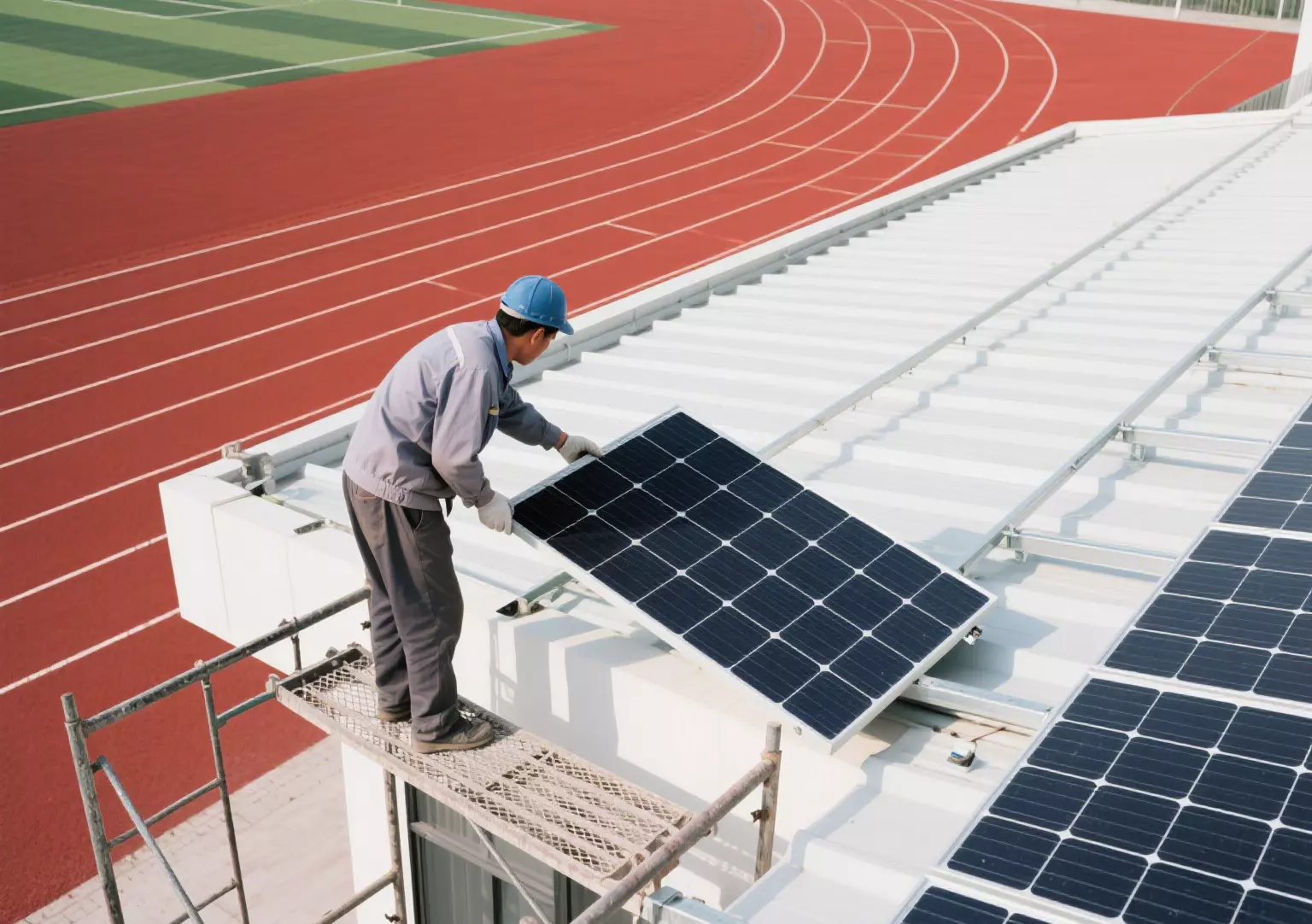3,500 rooftops to be equipped with solar? Israel’s photovoltaic policy is too aggressive

When you think of Israel in the Middle East, you might immediately think of high-tech military industry, innovation and entrepreneurship, or deserts and conflict. But recently, the country has also made a major move in the field of clean energy—a plan to install solar photovoltaic systems on the rooftops of 3,500 public stadiums nationwide.
Putting photovoltaic systems on stadium roofs might sound a bit crazy, but it turns out that this initiative is based on a comprehensive energy strategy that deserves the attention of everyone interested in clean energy, solar energy storage, and even public governance.
More importantly, this case study also shows that the future of photovoltaics is far more than just "power generation."
Generating electricity from public stadiums: Israel has taken a smart approach.
According to an announcement from the Israeli Ministry of Energy and Infrastructure, approximately 3,500 public sports venues across the country will be included in this solar rooftop program.
These stadiums, with their large rooftops and concentrated locations, not only enjoy excellent sunlight but also allow for unified planning and construction, resulting in extremely efficient operation. The entire project is expected to add 500 megawatts (MW) of installed capacity, crucial for Israel to achieve its national goal of 30% renewable energy by 2030. Energy Minister Elie Cohen explicitly stated that the purpose of this policy is not only to enhance national energy security, but also to transform previously "vacant" rooftop space into a long-term, sustainable, and profitable asset. Solar energy not only generates electricity but also provides shade for public spaces, mitigates summer heat, and optimizes the public service functions of stadiums.
A comprehensive rooftop photovoltaic policy package: Funding, approvals, and oversight are all in place.
If the goal is the direction, then policy is the accelerator.
To advance this national clean energy plan, the Israeli government has invested substantial financial resources:
✅ 34 million NIS (approximately $10 million) will be allocated in 2025 to support local governments in building rooftop photovoltaic projects.
✅ PV installation incentives will also be fully extended to public buildings in the water sector.
✅ Water utility projects will enjoy a three-year exemption from construction permits, effectively addressing the issue of delayed approvals.
✅ The government will also promote the reengineering of approval processes, establish dedicated financing channels, clarify approval pathways, and streamline procedures to increase local participation. This three-pronged approach of "projects + finance + regulation" has become the standard solution for countries to rapidly implement distributed energy amidst the current global energy transition.
The future of photovoltaics goes beyond "power generation."
However, we must also recognize a practical issue: photovoltaic power generation does not guarantee energy independence.
When the sun sets or the weather is inclement, photovoltaic systems become inefficient or even shut down. Conversely, during periods of intense sunlight, without energy storage systems, excess electricity is either wasted or exported at low prices.
Israel clearly recognizes this. The stadium rooftop photovoltaic project demonstrates a rapidly increasing demand for grid regulation capabilities and energy storage systems.
Remember, Israel's summer temperatures can easily reach 40 degrees Celsius, resulting in extremely high peak power loads. If every stadium rooftop were equipped with a local energy storage system, it would effectively offset peak loads, absorb electricity locally, improve energy efficiency, and even respond to sudden power outages, truly achieving a closed loop of "generation-storage-use."
Achieving city-level energy independence with a "solar + storage" solution
This model has become a trend in several countries:
Italy will add 6GWh of energy storage capacity by 2024, bringing the household energy storage system penetration rate to over 50%.
Germany is increasing the utilization of photovoltaic systems through a "home energy storage + community microgrid" solution.
California, USA, mandates that new homes be equipped with solar systems and encourages the simultaneous installation of energy storage equipment.
In this new energy revolution, "solar + storage" is no longer an add-on, but a mainstream configuration.
Our company is here for this very purpose.
Huijue Energy Storage: Providing reliable energy storage solutions for the global clean energy transition.
Facing the global trend of "rooftop PV + local energy storage," Huijue Energy Storage has launched a variety of residential and small commercial energy storage products for the international market, featuring star solutions designed specifically for integrated PV and energy storage:
Seamless PV integration
Supports up to 18kW PV input, covering the needs of most homes and public buildings
Supports string and micro-inverter paralleling for strong compatibility and wide adaptability
⚡ Intelligent energy storage management
Supports intelligent switching between on-grid and off-grid modes
Supports parallel connection for flexible power expansion
Built-in EMS energy management system helps users optimize power usage strategies and reduce electricity costs
Supports remote O&M and data monitoring for clear device status at a glance
We provide not only equipment but also comprehensive solutions:
From project planning → equipment selection → system integration → O&M support, we offer comprehensive services covering multiple markets.
It's not that Israel is "overreaching," it's that photovoltaics has truly reached a turning point.
The large-scale deployment of photovoltaics on public rooftops isn't just about environmental protection or electricity savings; it's about cities and countries exploring a more independent, safer, and smarter energy structure.
Underlying this trend is a clear global trend:
Distributed photovoltaics must be integrated with energy storage to be competitive in the future.
If you're also interested in:
How to create zero-carbon buildings using "solar + storage"?
How to choose energy storage for home/small commercial projects?
How to efficiently utilize rooftop resources and generate returns?
We believe that in this wave of clean energy, every roof is the gateway to future energy; every energy storage system is the cornerstone of green living.
